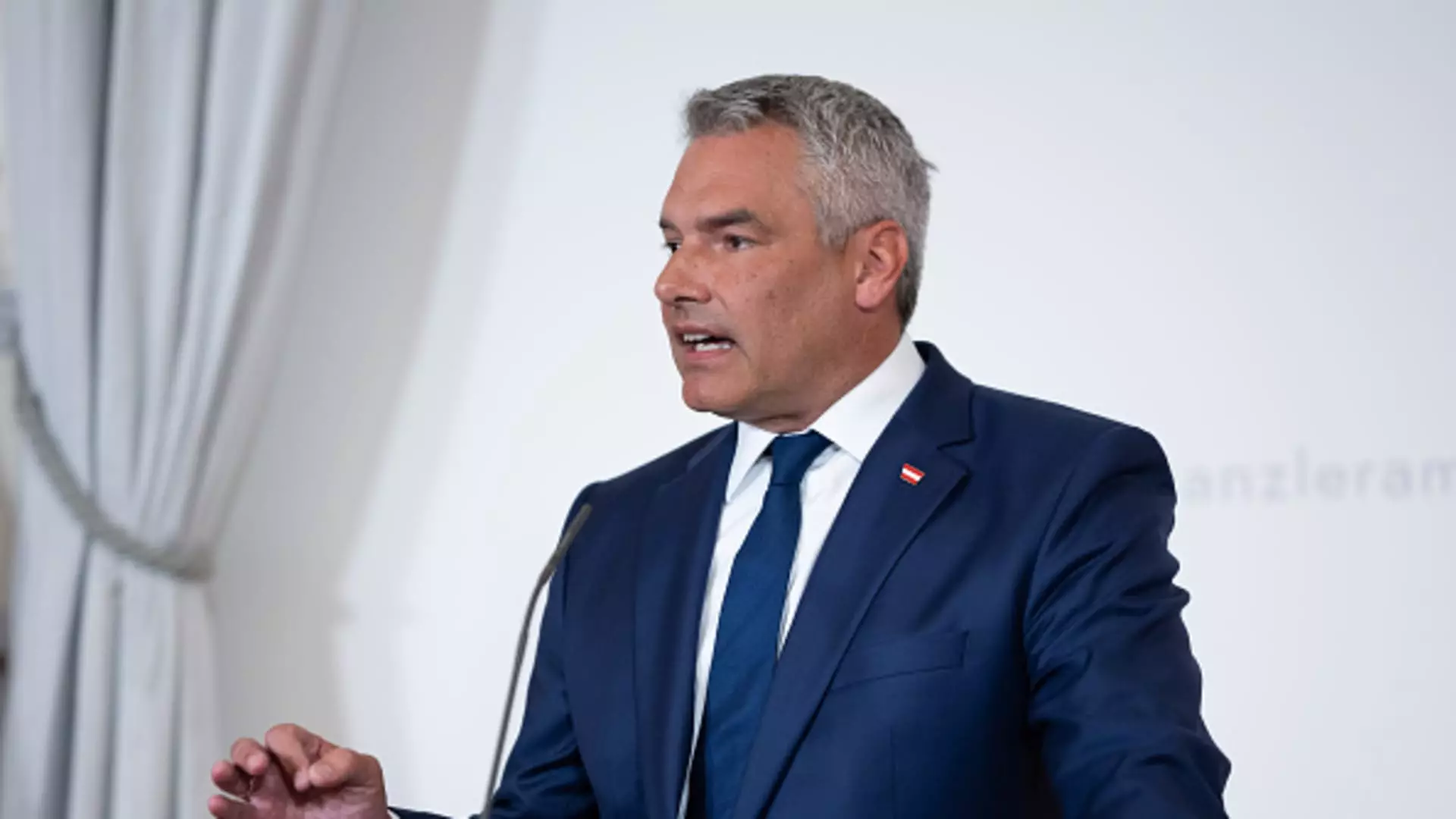In the political landscape of Austria, recent events have unveiled a troubling trend: the volatility of coalition governments amid rising populist sentiments. The breakdown of coalition talks among the country’s centrist parties has initiated a much-needed dialogue regarding the nation’s democratic integrity, the role of the far-right Freedom Party (FPO), and the future of governance in Austria. Conservative Chancellor Karl Nehammer’s decision to step down symbolizes not just a personal loss but a broader governmental crisis that encapsulates the difficulties European nations face in fostering stable political coalitions.
The discussions to form a governmental coalition among Austria’s center-right People’s Party (OVP), the Social Democrats (SPO), and the liberal Neos came to an abrupt halt over the weekend, highlighting the significant ideological chasm that separates these parties. Neos, having abandoned the talks, chastised the other parties for their lukewarm approach towards necessary policies, particularly those concerning social welfare and public sector salaries. The demise of these coalition talks, merely three months after the parliamentary elections, illustrates how hard it has become to form lasting alliances in a political climate characterized by division and distrust.
Nehammer’s announcement to resign marks a critical juncture not only for his political career but also for the trajectory of the OVP. His video statement on social media signifies the shifting tides in Austrian politics where once-sturdy alliances are unraveling. The chancellor’s resignation reveals a frustration with internal party dynamics and external pressures, particularly from an increasingly emboldened FPO, which emerged as a formidable electoral contender, claiming nearly 29% of the popular vote in the last election.
The FPO’s surge in popularity sets a precarious stage for Austrian democracy. Despite Nehammer’s apprehensions about entrusting the leadership to FPO’s Herbert Kickl, the People’s Party may find itself cornered into an eventual alliance with its far-right competitor. The dynamics of coalition politics necessitate a delicate balancing act, often forcing moderate parties into uncomfortable compromises. As both the OVP and SPO grapple with their identities in relation to the FPO, the possibility of an FPO-led government becomes increasingly tangible.
Kickl, ever the provocateur, has previously characterized the coalition attempts as flawed, blaming the President and party leaders for their inability to form a cohesive strategy. The polarization between moderates and far-right extremists is intensifying, as shown by Kickl’s rhetoric, which mirrors the incendiary nature of today’s political discourse across Europe. With public support for the FPO rising, the stakes are no longer limited to parliamentary maneuvering but extend into the very fabric of Austrian democracy.
The ramifications of these political developments are manifold. A potential alliance between the OVP and the FPO would shift the political conversation towards more authoritarian governance under a far-right agenda. As parties become more ideologically aligned with populist sentiments, they may deviate from established democratic principles, igniting fears about the direction of civil liberties and governmental accountability in Austria.
President Alexander Van der Bellen faces the daunting task of navigating this quagmire. His reluctance to support a coalition with the FPO stems from concerns regarding democratic integrity, yet, with Nehammer stepping down, the political needle is likely to swing rightward. Party leaders must confront the reality that many constituents are rallying behind populist narratives that promise easy solutions to complex problems like immigration and economic inequality.
The persistent failure to form a stable coalition raises broader questions regarding the future of multiparty democracy in Austria and beyond. Could the ongoing political turmoil pave the way for autocratic governance disguised as popular representation? Amidst these uncertainties, it is critical for political leaders to prioritize dialogue, compromise, and a recommitment to democratic principles, lest they find themselves trapped by the very forces they seek to mitigate. The Austrian political arena stands at a crossroads, and its decisions will undoubtedly reverberate throughout Europe in the coming years.


Leave a Reply